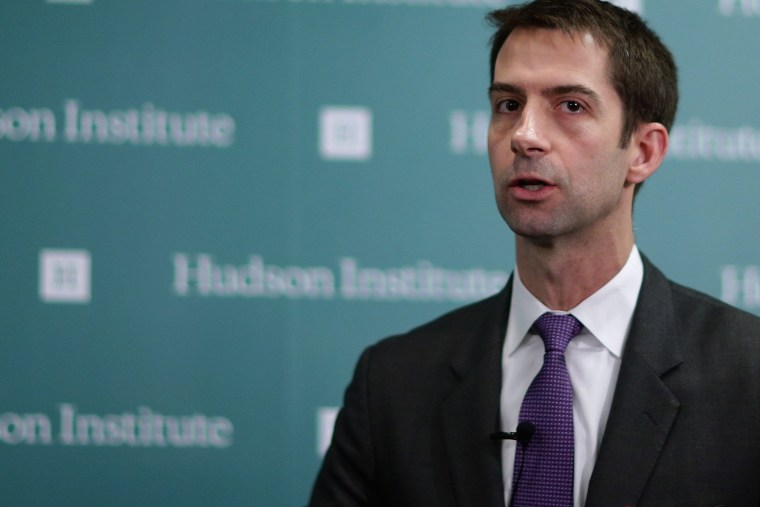Last month, 47 Senate Republicans surprised much of the world by sending a letter to Iranian officials, trying to derail international nuclear talks and sabotage American foreign policy. The stunt didn't work, but the initiative itself was dangerous: when the United States communicates with foreign nations, it's important that the world hears one voice.
Sen. Tom Cotton (R-Ark.) and his 46 friends told a foreign foe the opposite: they told Iran not to trust U.S. negotiators.
This month, ThinkProgress reports that Cotton's stunt has apparently inspired a copycat.
In an effort to undermine international negotiations aimed at combating climate change, Senate Majority Leader Mitch McConnell (R-KY) is telling other countries not to trust President Obama's promise to significantly reduce the United States' carbon emissions. In a statement released Tuesday, McConnell warned other countries to "proceed with caution" before pledging any carbon emissions reductions to the United Nations, saying the U.S. would likely not be able to meet its own climate goals.
"Mitch McConnell has evidently stolen Tom Cotton's playbook for undermining American leadership in the face of international crises," a Sierra Club official said in a statement.
The parallel between the two stunts matters.
Just yesterday, the White House officially submitted emissions targets, formalizing a climate agreement Obama administration officials agreed to earlier. To make the process effective, other countries must take our commitment seriously.
As Rebecca Leber, looking ahead to international talks later this year, explained, "A successful Paris deal rests in part on how well the White House can assure the rest of the world that the Obama administration can overcome political (conservative) intransigence. Congress won't work with Obama, so he's making it clear that he himself can put the country on track to meet its commitments."
Enter Mitch McConnell, telling the world not to trust U.S. officials involved with these negotiations.
We're accustomed to looking at GOP senators, and the GOP Senate leadership, as obstructionist when it comes to the president's agenda, but this generally refers to developments in Congress. McConnell and Cotton are taking this to unprecedented levels, pushing obstructionist tactics onto the global stage.
American foreign policy isn't supposed to work this way; it's never worked this way; and it can't work this way.
